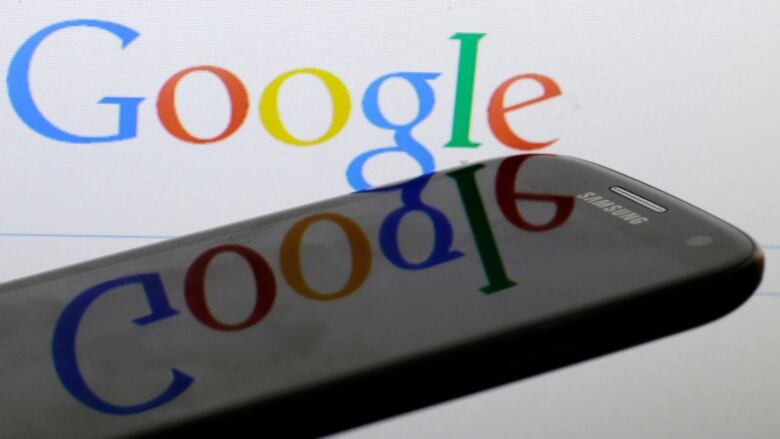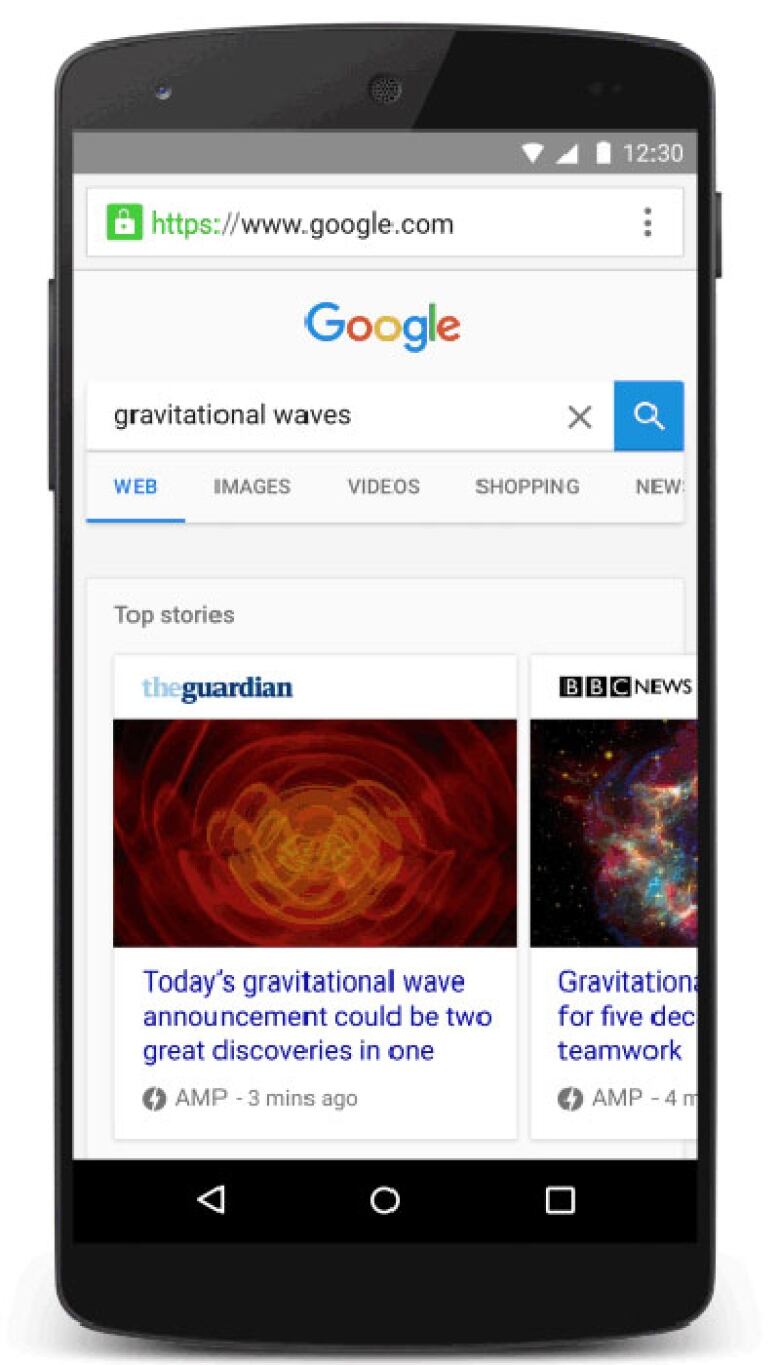Google, Canadian media outlets launch AMP websites
Accelerated Mobile Pages will load up to 4 times faster, use less data on your smartphone

Starting today, when you use your smartphone to search for news stories on Google's search or Google News in Canada, your top search results will be notably different than they were before.
Google Canada and major Canadian publishers are launching Accelerated Mobile Pages or AMP websites built using open-source rules and tools developed by Google with the promise that they will load much faster and eat up far less of your data on a mobile device.
The launch means that major Canadian publishers like the Globe and Mail, the Toronto Star, Global News, the Weather Network, and Postmedia (and, in the near future, CBC News) will start displaying AMP pages when you visit them on your smartphone.

It also means the Google.ca search and Google News Canada will start featuring AMP news articles in a prominent carousel at the top of the page in response to searches. AMP stories will likely also appear at the top of regular search results, as they're designed to be faster than conventional pages, and Google has been prioritizing pages based partly on loading speed for about two years, Richard Gingras, head of Google News, told CBC.
AMP, announced last fall, has already officially rolled out in about 10 other countries, and about 120 million AMP documents have already been created from over 650,000 publishing domains around the world.
Gingras says the project originated with a discussion between Google and publishers in May last year, where many expressed concern about users being driven from the web by slow loading times and intrusive, bandwidth-hogging ads. Those users had been fleeing to platforms like Facebook, which has been a growing source of news for many users, and in 2015 launched its Instant Articles service, allowing publishers to publish directly to Facebook instead of the web.
"Clearly, users are finding great comfort using proprietary platforms like social networks and messaging apps, where, because of the design of those, they are very fast," Gingras said. "The conclusion of everyone was we've got to make the web fast and compelling."
4 times faster
He noted that research shows that if a web page takes longer than three seconds to load, 40 per cent of users abandon the page and never read it.
The solution created by Google and big international publishers such as the New York Times and the Guardian was AMP, a set of open-source rules and tools designed to force mobile web pages to be leaner and more efficient. It eliminates redundant code and isolates web page components that can slow down loading for the rest of the page.

Because of that, AMP pages load an average of four times faster and use "10 times less data than equivalent non-AMP pages," wrote David Besbris, Google's VP of Engineering and Search in a blog post in February.
The tagline on the Accerlerated Mobile Pages Project websiteis: "Instant. Everywhere."
"If it's instant, you'll simply consume more," Gingras said. The hope is that users will do that on the web instead of on platforms like Facebook.
Win-win?
John Hinds, president and CEO of the industry group Newspapers Canada, said a lot of his members, such as the Globe and Mail and the Toronto Star, feel Google AMP is an important development.
"It's really all about the reader's experience, and anything that can enhance that experience I think is good for the media," he said. "On the readership side, it's a huge asset. The challenge will be how it impacts the bottom line."
On the plus side, Google AMP will enable publishers to use paywalls and subscriptions to generate revenue something that isn't possible with Facebook Instant Articles, says Rasmus Nielsen, director of research for the Reuters Institute for the Study of Journalism at Oxford University.
He sees Google AMP as being generally positive for publishers, readers and Google.
"It could be a win-win situation," he said.
But it will limit the types of ads that news organizations can sell, since AMP requires slimmer formats that would exclude many Flash-based ads, for example, he noted.
Open source, but costly
And while the open-source rules and tools are free to use without licensing fees, using them means hiring developers to build new mobile pages.
"The resources that you have to plow into AMP are substantial," says Dwayne Winseck, a professor of journalism and communication at Carleton University. "And basically you have to do it."
Those who don't risk losing a visible spot in Google's search.
"But only those who have deep enough pockets can do it," Winseck added. That could reinforce the existing hierarchy in the news media, where bigger organizations gain influence at the expense of smaller organizations.
On the other hand, investing in AMP could put some organizations ahead, especially in Canada, where many media organizations were using inefficient, outdated technology, says Lisa Lynch, a professor of communications who recently moved to Drew University in New Jersey from Concordia University in Montreal. "Switching over to AMP, they get to skip a few steps, maybe."
And while some might worry about the media ceding so much control to Google, Lynch says most media organizations are past that, given the challenge of reaching readers in today's world.
"Anything that makes people read anything at all, at this stage of the game that's on balance a good thing, and the news industry is really too weak at this point to have anything to say about the rest of it."












_(720p).jpg)


 OFFICIAL HD MUSIC VIDEO.jpg)
.jpg)



























































































